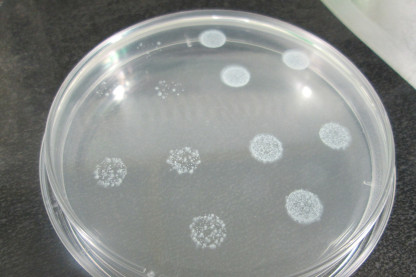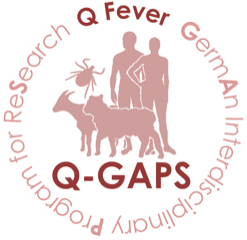Coxiella burnetii: application of ACCM-D to investigate infectivity, disinfection efficacy and epidemiology

Photo: Universitätsklinikum Jena, Institut für Medizinische Mikrobiologie
Titration of Coxiella for CFU determination
Abstract
Coxiella burnetii shows high environmental resistance without forming spores. The efficacy of disinfectants against Coxiella is deduced from sporicidal efficacy tested against spores of Bacillus sp. or Clostridium sp. But C. burnetii exists as an exogenous particle with high environmental resistance, which differs from the classical spores of the Bacillae and Clostridiae.
We will study the efficacy of these disinfectants according to the guidelines of the German Association of Veterinary Medicine and the German Association for Applied Hygiene. The resulting evaluation of the cell free culture medium is also required for investigating chronic Q fever. We will study its prevalence for different cardiovascular diseases. Besides this we will use the newly established ACCM-D culture medium for isolating causative C. burnetiii strains. The isolated strains will be characterized genomically and immunologically by the project partners. Another issue is the fact that C. burnetii is found in milk of women who got Q fever during pregnancy. During outbreaks the question often arises if breastfeeding has to be stopped to avoid clinically relevant transmission to the newborn? For successful infection the ability to withstand acidic stresses in the stomach after ingestion is crucial. In this context, acid resistance of different C. burnetii strains will be examined likewise with ACCM-D.
Principal investigators

PD Dr. Katharina Boden
Universitätsklinikum Jena
Institut für Medizinische Mikrobiologie
Erlanger Allee 101
07747 Jena
Scientific Assistants
Universitätsklinikum Jena
Institut für Medizinische Mikrobiologie
Erlanger Allee 101
07747 Jena


